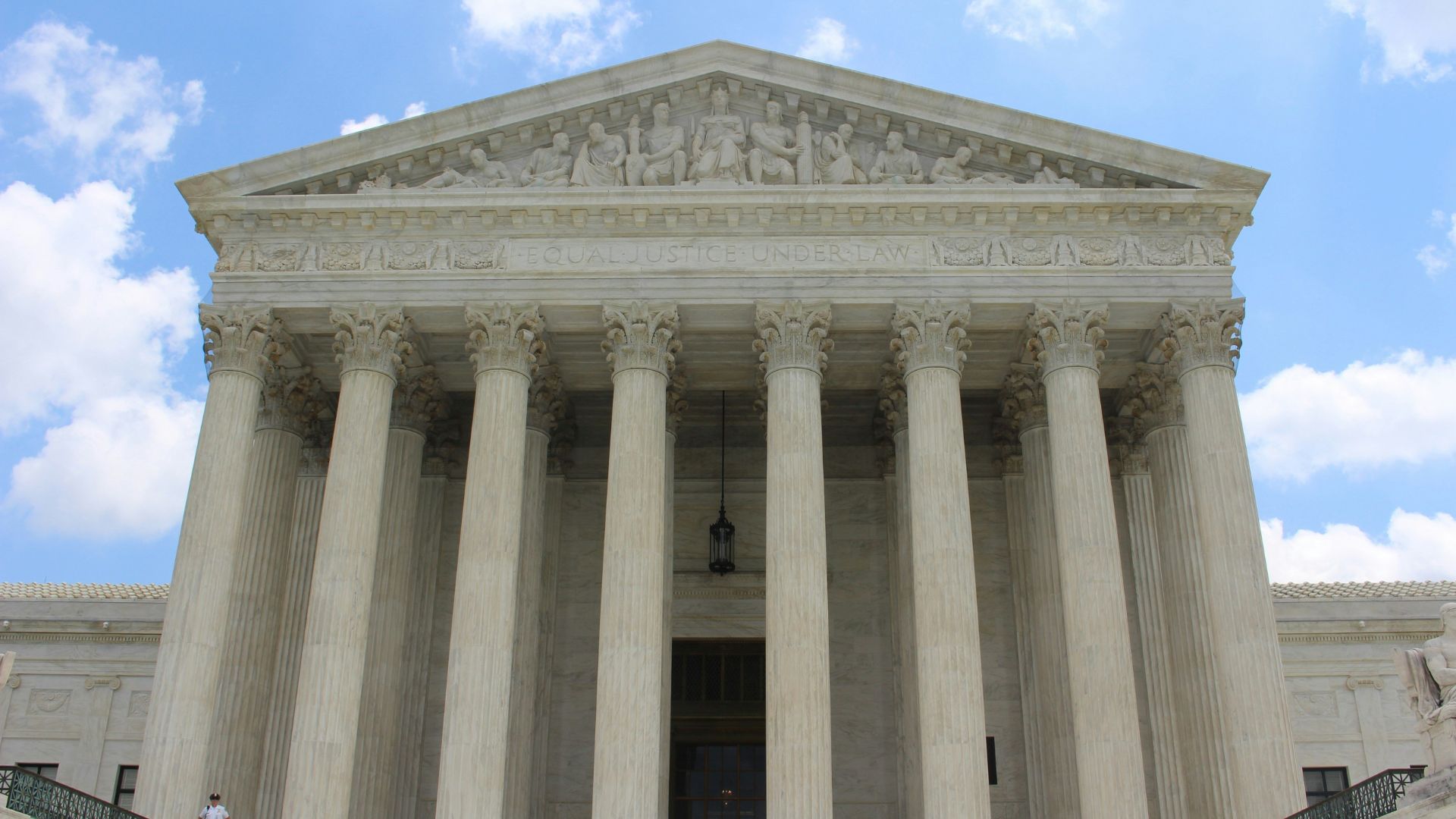On Monday, a judge in a federal court temporarily blocked a new Iowa law going into effect July 1 that would empower state law enforcement to arrest and prosecute residents with outstanding deportation orders or who have previously been denied entry into the country.
Iowa is among several states that are passing recent provisions to empower the local government to take control of their own immigration concerns, a role traditionally left in the hands of the federal government.
Iowa Law

Iowa’s new law, mirrored after a similar one in Texas, would make it a state crime to be in Iowa if you have been denied admission or previously been deported from the United States without legal status.
It was signed by Iowa Governor Kim Reynolds in April and at the time was controversial among legal experts and law enforcement.
Reynolds on the Law

The bill Governor Reynolds signed into law was called SF 2340. In a press announcement regarding the bill signing, she blamed the Biden Administration for forcing the state’s hand.
“The Biden Administration has failed to enforce our nation’s immigration laws, putting the protection and safety of Iowans at risk. Those who come into our country illegally have broken the law, yet Biden refuses to deport them. This bill gives Iowa law enforcement the power to do what he is unwilling to do: enforce immigration laws already on the books,” said Reynolds.
Concerns from Law Enforcement

When the law was passed, some law enforcement officials felt they did not have to resources to properly comply with the new law. Some expressed confusion about how they were supposed to carry it out.
“Simply stated, not only do we not have the resources to assume this additional task, we don’t even have the ability to perform this function,” said Des Moines Police Chief Dana Wingert.
Legal Skepticism

Christopher Eisworth, an attorney for the Department of Justice felt that the Iowa law violated established rules on the federal government’s interest in having sole authority over immigration concerns. “It’s clearly a federal responsibility,” said Eiswerth.
Legal scholars argue that Supreme Court precedent has clearly established the federal government’s authority over immigration, though it is not spelled out in specific words in the United States Constitution as a federal power.
Preliminary Injunction

US District Court Judge Stephen Locher was behind the temporary hold on the law going into effect, issuing a preliminary injunction. Locher thought that a lawsuit against the state by the US Department of Justice and interest groups would likely succeed in the merits of their argument.
“As a matter of politics, the new legislation might be defensible,” Locher wrote in his decision. “As a matter of constitutional law, it is not.”
State’s Argument

In the leadup to the decision, Iowa argued the case for its new law in court in front of the judge. Patrick Valencia, Iowa’s deputy solicitor general, was insistent that the law did not create new immigration rules but merely allowed state authorities to carry out already existing federal law.
“We have a law that adopts the federal standard,” Valencia said.
Lawsuit Against the State

In the wake of the law’s passing, civil rights groups and the DOJ joined together in a lawsuit, arguing this new law would cause profound harm to Iowa.
“This ugly law is deeply harmful to Iowa families and communities,” said legal director of Iowa ACLU Bettis Austen. “Iowa lawmakers knowingly targeted people who are protected by federal immigration laws and who are legally allowed to be here, like people granted asylum, or special visas given to survivors of domestic violence or other crimes.”
Trust the Federal Government

Austen argued that there is good reason to entrust the federal government with this issue, otherwise, you end up with 50 different immigration rules for each state.
“And there are lots of good reasons — related to foreign relations, national security, humanitarian interests, and our constitutional system — why the federal government enforces our immigration law, instead of all 50 states going out and doing their own thing to enforce their own separate immigration schemes. It’s hard to overstate how awful and bizarre this law is,” Austen said.
Absolute Chaos

Kate Melloy Goettel, legal director at the American Immigration Council, felt that the efforts of the Iowa government would only deepen the human suffering experienced by undocumented immigrants.
“[The law would] create absolute chaos and human suffering in our legal system, and harm Iowa communities,” said Goettel.
Important Issue

This injunction against the Iowa law comes as immigration and a recent influx of migrants into the country have become an important political issue for many Americans.
In February, Pew Research found that a 78% majority of Americans think the influx of migrants entering the country constituted either a crisis or a major problem.
Promise to Appeal

Although there is an injunction against the law that stops it from going into effect, the fight over this law is not over. Iowa’s Attorney General Brenna Bird has promised to appeal the federal block.
“Since Biden refuses to secure our border, he has left states with no choice but to do the job for him. I will be appealing the court’s decision today that blocks IA from stopping illegal reentry and keeping our communities safe,” wrote Bird on X.
